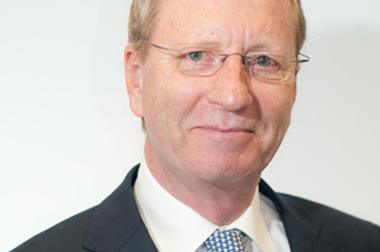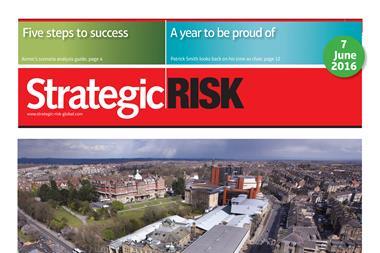Risk is rising up the board agenda fast, Airmic chief executive John Hurrell told delegates in Harrogate today. As members report dramatic improvements in access to senior managers, and the risk landscape continues to evolve at speed, risk managers must seize the chance to make their voices heard

Addressing more than 1000 delegates in his opening speech of Airmic’s annual conference in Harrogate this afternoon, chief executive John Hurrell said risk is moving up the board agenda quickly. This creates exciting opportunities for risk managers to take a leadership role and make a real difference to the effectiveness of risk management and oversight.
This trend is backed up by the results of Airmic’s latest annual member survey, which found dramatic improvements in board access for risk managers, Hurrell said. He called for Airmic members to ensure they have their heads above the parapet and add some value.
“After various discussions with bodies such as Tomorrow’s Company, the Chartered Institute of Management Accountants and The Chairmen’s Forum, it’s clear to us that risk is going up the agenda, partly because of the FRC Code that came out in 2014, but partly due to the growing awareness of how complex and fast-moving the risk scene is for boards,” Hurrell told StrategicRISK.
An example of this is cyber. For the first time ever, cyber risks are the top two ranking risks in the annual survey. Cyber risk business interruption and cyber risk data breach were way ahead of the other risks in the top five. “Interestingly, the level of confidence that our members have in their own organisation’s ability to manage cyber risk is among the lowest for any of the top risks,” Hurrell said.
Increased risk awareness of the board and the fast-evolving risk landscape create “the best opportunity that I can remember in a very long time for risk managers to add value within their organisations,” he added.
“The boards are showing genuine leadership in terms of risk management and risk oversight within the organisation. The feedback from our members is that the boardroom door is open but the challenge is how to take advantage of that opportunity and then how to get things like risk culture more embedded within the organisation.”
Another hot topic for this year’s conference will be the Insurance Act. With its introduction only weeks away, the risk and insurance manager will have to take control of the process, needing a more comprehensive dialogue with their insurers, developing closer partnerships with their insurers and making sure their risks are robustly covered by insurance.
To help support their members with their new duties under the Act, Airmic will deliver a clause at the conference, prepared by Herbert Smith Freehills. This will effectively say that if there is an innocent non-disclosure that would have resulted in the insurer charging an additional premium, had they known about it, then the additional premium will be paid, rather than a reduced claim.
“We will give this wording to our members and they can then decide whether that wording works for them. If so, they can negotiate that with their brokers and insurers. We’re not pre-broking it into the market, but we know that some insurers are willing to have that conversation,” Hurrell said.
Airmic will also launch a variety of publications at the conference today to help members step up and make that difference in their organisation. These include an update on the state of the insurance market in terms of innovation of new covers, a guide on scenario planning, and papers on captives, M&A and employee benefits.
In the upcoming year, Airmic will work on reports on behavioural risk and cyber risk, among others. For these, the association aims to work with academic partners or other professional bodies.
“We see [managing these large business issues] as an integrated process where our members will hopefully be part of a team of people within their own organisations,” said Hurrell.
“It’s an opportunity for them to work with people like company secretaries, group legal, finance, accounting and personnel, so those are the sorts of bodies we want to work with for our papers.”




















No comments yet